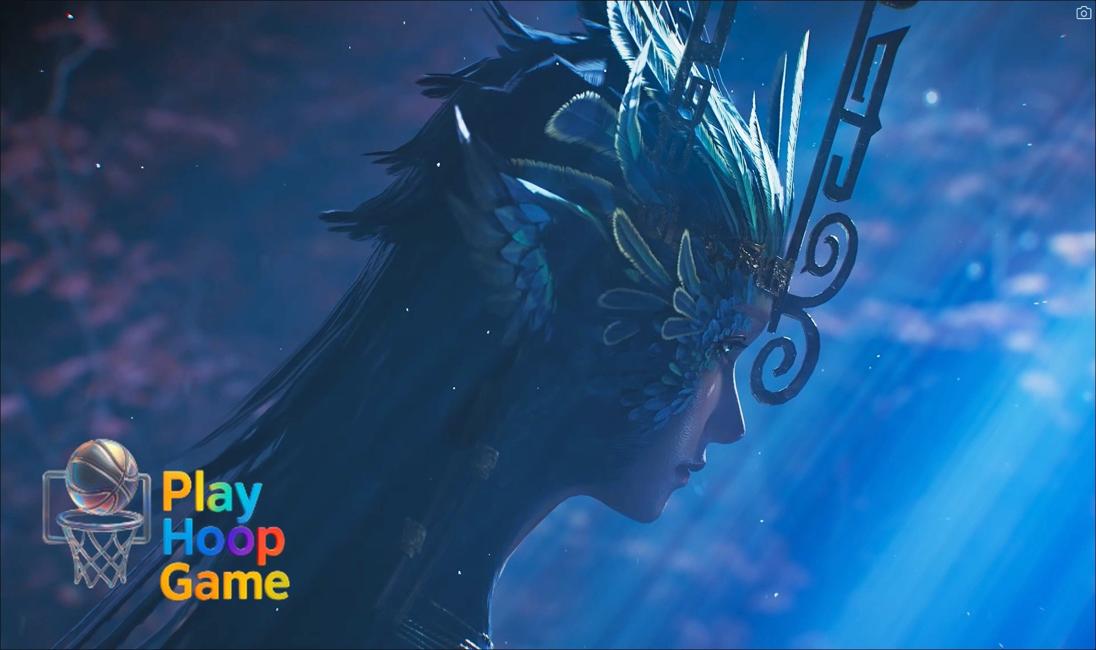You ever get that feeling? You see a game trailer for the first time, and it just hits. The atmosphere is thick, the combat is brutal and visceral, the art direction feels uncompromising. It’s the raw, unfiltered vision of a creative team, and you’re immediately sold. You mark your calendar, follow the developers on social media, and you wait. And wait.
Then launch day comes. You boot it up, and something’s… off. The blood effects seem a little muted. An enemy design you thought was terrifying now looks slightly less so. A character’s outfit, once ornate and flowing, is now a bit more practical, a bit more toned down. It’s still a good game, maybe even a great one. But that initial spark, that specific, untamed energy you fell in love with? It’s been sanded down. Smoothed over for mass consumption.
It’s a tale as old as time in the gaming world, and it’s the exact story playing out right now with the gorgeous, Ming Dynasty-era Soulslike, Wuchang: Fallen Feathers. But, as is often the case, the story doesn't end there. Because where there’s a perceived compromise, the modding community is never far behind.
First, Let's Talk About Wuchang's Promise
Let's be clear: Wuchang: Fallen Feathers looks incredible. It’s dripping with style—a dark, brooding take on Chinese history and mythology that feels both familiar to fans of the genre and refreshingly new. Developed by Leenzee Games, it promises a brutal challenge set in the chaotic late Ming Dynasty, where a mysterious plague is turning people into monstrous creatures. Think Sekiro meets Bloodborne, but with its own distinct cultural identity.
The early gameplay footage was what really captured everyone. It was messy. It was violent. The creature designs were genuinely unsettling, pulling from deep wells of Chinese folklore to create things that don’t just want to kill you, they want to haunt you. This wasn't some sanitized, focus-tested adventure. This felt like art with a capital 'A'. And a lot of blood.
And that’s where our little drama begins. Somewhere between that initial, jaw-dropping reveal and the version that eventually hit digital storefronts, changes were made. Nuances, mostly. The kind of things a casual player might never even notice. But for the die-hards who had been dissecting every frame of the trailers? The differences were glaring.
The Wuchang: Fallen Feathers Mod Rolls Back Game To Its Grittier Roots
It didn’t take long. In what feels like record time, a mod appeared online. The title was simple, direct, and packed with intent: “Original Version Restoration.” Or something to that effect—these things tend to have a few different names floating around. The goal, however, was singular: A Wuchang: Fallen Feathers mod rolls back game to pre-‘censorship’ version, meticulously re-implementing the visual and atmospheric effects seen in the early promotional materials.
So what are we talking about, exactly? From what I’ve gathered digging through forums and watching comparison videos, the changes are subtle but cumulative.
- Blood and Gore: The launch version toned down the blood splatter and dismemberment effects. The mod brings them back to their full, crimson glory. It’s not just about shock value; it’s about impact. A heavy sword feels heavier when the result is appropriately messy.
- Enemy Aesthetics: Some of the more grotesque enemy details—festering sores, exposed bones, certain unsettling textures—were reportedly softened. The mod restores these, pushing the horror element back to the forefront.
- Character Models: This is always a contentious one. Apparently, a few character outfits were altered to be less revealing or, in some cases, just different from their initial concepts. The mod reverts these changes, sticking to the earliest available designs.
The fascinating thing here isn't just that someone did this. It's the why. It speaks to a powerful sense of ownership players feel over the games they love. For them, that first trailer wasn't just marketing; it was a promise. A declaration of intent. When the final product deviates, it can feel like a bait-and-switch, even if the developer's reasons were perfectly valid (which we’ll get to). These modders see themselves less as hackers and more as digital archivists, or maybe even restoration artists, preserving the "director's cut" that never was.
But Is "Censorship" Really the Right Word?
Here’s the thing. It’s easy to throw the word “censorship” around. It’s evocative, it implies a malicious force suppressing an artist’s true vision, and it gets a lot of clicks. But the reality is almost always more complicated. I’ve seen this conversation pop up around everything from huge AAA titles to indie darlings.
Actually, let me rephrase that. It’s almost never as simple as some shadowy executive demanding a game be made less interesting.
Think about it this way. Developers have to navigate a minefield of international ratings boards. The ESRB in North America, PEGI in Europe, CERO in Japan—they all have different standards for what constitutes a “Mature” versus an “Adults Only” rating. An AO rating can be a commercial death sentence in the U.S., locking a game out of major retail channels. Could tweaking some gore effects be the difference between an M and an AO rating? Absolutely. This isn't so much censorship as it is a pragmatic business decision.
Sometimes, it's about performance. Extra particle effects and super-high-resolution textures can tank a game's framerate on less powerful hardware. Changes might be made late in development to ensure the game runs smoothly for more people. And sometimes—and this is the one people hate to admit—the creative vision just evolves during the long, arduous process of making a game. What seemed like a great idea in a 2021 vertical slice might not fit the tone of the finished game in 2024. This happens in film, in writing, and yes, in games.
None of this invalidates the work of the modders, of course. Their efforts provide a choice. They give players the agency to experience the game closer to that initial, raw vision, regardless of the reasons for the changes. And in an industry that can sometimes feel overwhelmingly corporate, that player agency is something worth celebrating. It's a reminder that gaming is a conversation, a dynamic ecosystem where players can, quite literally, rewrite the code. Much like the constant flux of trending games, community tastes and efforts can reshape a game's legacy long after launch.
Your Questions About the Wuchang Mod, Answered
So, what exactly does this 'pre-censorship' mod for Wuchang actually do?
In short, it aims to restore the game's aesthetic to what was shown in early trailers. This primarily means uncapping or enhancing blood and gore effects, reverting certain enemy models to their arguably more grotesque original designs, and sometimes altering character outfits to match the initial concept art. It's all about recapturing that original, "unfiltered" vibe.
Is installing a mod like this going to get me banned?
Generally, for a single-player game like Wuchang: Fallen Feathers, the answer is almost certainly no. Bans are typically reserved for multiplayer games where mods can create an unfair advantage (like cheating). A purely cosmetic mod that only affects your personal experience is usually safe. Still, always back up your save files before you start modding! It's just good practice.
Why would developers change their game like this in the first place?
As we talked about, it's rarely a simple case of "selling out." The most common reasons are to secure a specific age rating (like M instead of AO), to improve game performance across different hardware, or simply because the creative direction of the project evolved over its multi-year development cycle. It's a complex balance of art and commerce.
Is it even fair to call it 'censorship'?
That's the million-dollar question, isn't it? "Censorship" implies an external authority forcing a change. While that can happen, it's often more of a "self-censorship" for market access or technical reasons. Some argue any compromise of the original artistic vision is a form of censorship, while others feel it’s just a normal part of the production process. The term is loaded, but it's the one the community has latched onto.
Ultimately, what matters is that the Wuchang: Fallen Feathers mod rolls back game to pre-‘censorship’ version for those who want it, offering a fascinating glimpse into what might have been. It's less about pointing fingers and more about celebrating player choice. After all, having more ways to enjoy great games, like the endless variety on sites like CrazyGames, is always a good thing.
I keep coming back to this point because it's crucial: the power of the modding community is one of the most unique and important aspects of PC gaming. They are the unpaid, passionate guardians of a game's soul. Whether they're fixing bugs developers have ignored for years, adding entirely new content, or simply restoring a bit of lost grit, they prove that a game is more than just a product. It's a living world. And sometimes, that world just needs a little help remembering what it was supposed to be. And really, who can argue with that? It's a better outcome than the slow fade to obscurity, like the once-ubiquitous AOL dial-up sound, a relic of a bygone era.

























